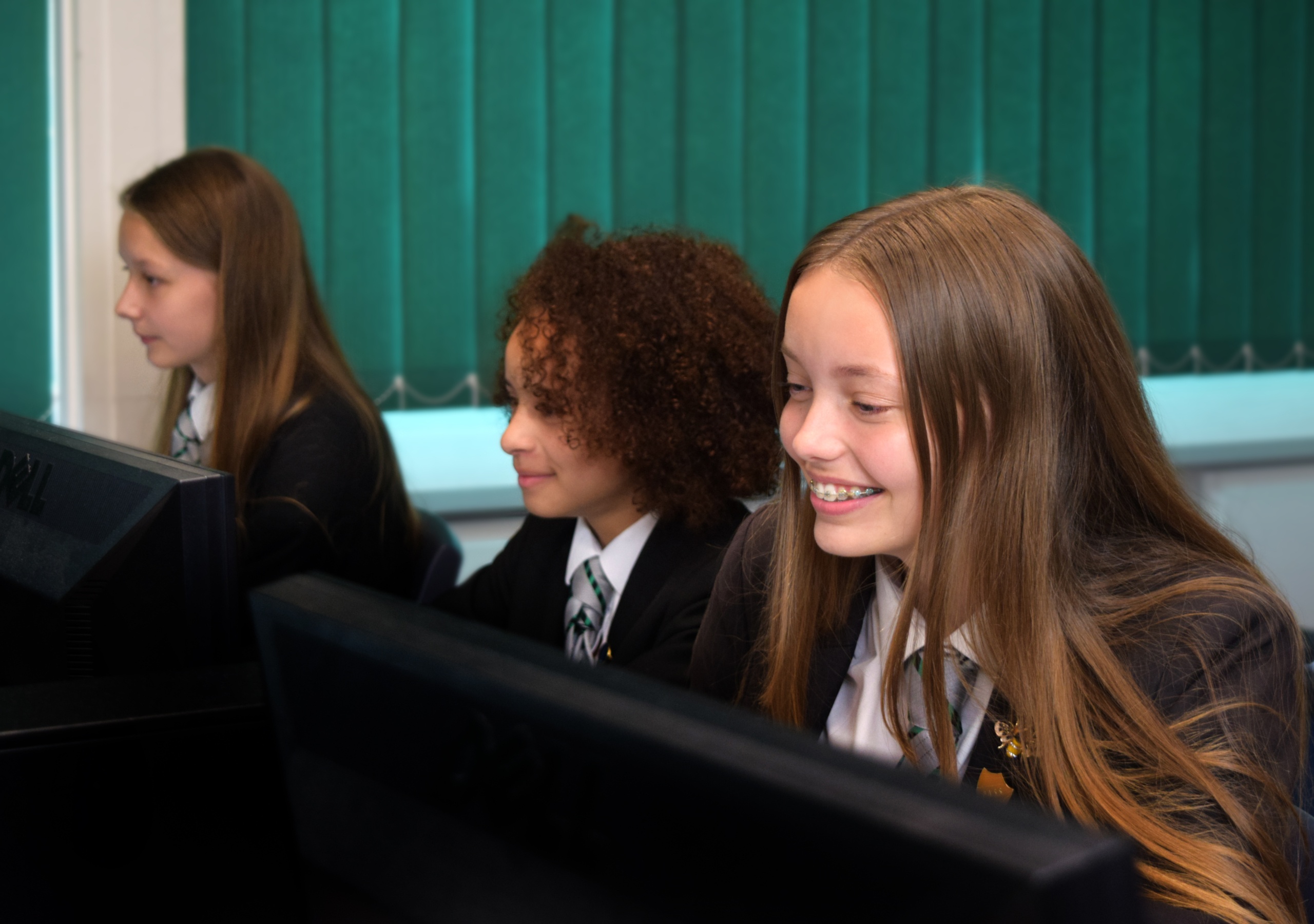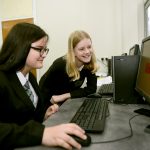Welcome to the Computing Department
Our Vision and Ambition
Our vision is to inspire and equip students so that they can have a competitive advantage in the digital jobs market of the future, as well as using their technical skills to make the world a better place.
We follow, embrace and strive to deliver the National Curriculum for Computing, which states “Students are taught the principles of information and computation, how digital systems work and how to put this knowledge to use through programming. Building on this knowledge and understanding, students are equipped to use information technology to create programs, systems and a range of content. Computing also ensures that students become digitally literate – able to use, and express themselves and develop their ideas through, information and communication technology – at a level suitable for the future workplace and as active participants in a digital world.”
What Do Our Lessons Look Like?
In each lesson pupils will be led by passionate subject experts where pupils can “Think Big”, be creative, solve problems and understand technology. Lessons are sequenced from Year 7 and 11 where pupil’s knowledge, understanding and experience are cumulatively built upon. Lessons are purposeful, use pedagogical approaches throughout (e.g. Rosenshine & NCCE Computing Pedagogy) and help pupils to be ready for post 16 education and future citizens.
In terms of enrichment, we offer trips (e.g. Bletchley Park, Royal Signals Museum) and after school activities from additional programming support (Year 8 to 11) and our Gold Programme club (Year 7 and 8).
Curriculum Content
Key Stage 3
Year 7
- Getting Setup
- Think Safe
- Think Like an IT Technician
- Think Like a Data Manager
- Think Like a Programmer
Year 8
- Think Like an IT Technician
- Think Like a Programmer
- Think Safe
- Think Like a Data Analyst
Year 9 – Preparation for Computer Science
- Computer hardware and software
- Computer memory and storage
- Moral, legal, cultural and environmental concerns
- Project planning including a programming project using Python
- Systems security
- Computational Logic
- Programming techniques
- Introduction to writing algorithms using flowcharts and pseudocode
- Networking

Key Stage 4
For students who take GCSE Computer Science we follow the OCR GCSE Computer Science (9-1) syllabus.
GCSE Computing
Aims and learning outcomes
The aim of the course is to encourage students to:
- Understand and apply the fundamental principles and concepts of Computer Science, including abstraction, decomposition, logic, algorithms, and data representation
- Analyse problems in computational terms through practical experience of solving such problems, including designing, writing and debugging programs
- Think creatively, innovatively, analytically, logically and critically
- Understand the components that make up digital systems, and how they communicate with one another and with other systems
- Understand the impacts of digital technology to the individual and to wider society
- Apply mathematical skills relevant to Computer Science
OCR Specification
- Systems Architecture
- Memory
- Storage
- Wired and wireless networks
- Network topologies, protocols and layers
- System security
- System software
- Ethical, legal, cultural and environmental concerns
- Algorithms
- Programming techniques
- Producing robust programs
- Computational logic
- Translators and facilities of languages
- Data representation


